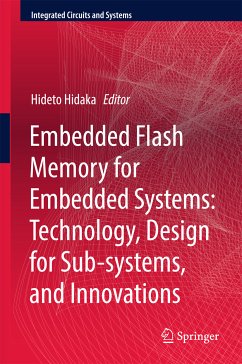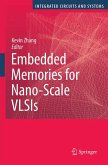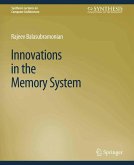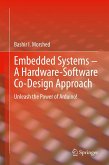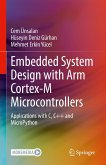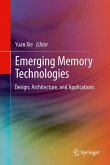This book provides a comprehensive introduction to embedded flash memory, describing the history, current status, and future projections for technology, circuits, and systems applications. The authors describe current main-stream embedded flash technologies from floating-gate 1Tr, floating-gate with split-gate (1.5Tr), and 1Tr/1.5Tr SONOS flash technologies and their successful creation of various applications. Comparisons of these embedded flash technologies and future projections are also provided. The authors demonstrate a variety of embedded applications for auto-motive, smart-IC cards, and low-power, representing the leading-edge technology developments for eFlash. The discussion also includes insights into future prospects of application-driven non-volatile memory technology in the era of smart advanced automotive system, such as ADAS (Advanced Driver Assistance System) and IoE (Internet of Everything). Trials on technology convergence and future prospects of embedded non-volatile memory in the new memory hierarchy are also described.
- Introduces the history of embedded flash memory technology for micro-controller products and how embedded flash innovations developed;
- Includes comprehensive and detailed descriptions of current main-stream embedded flash memory technologies, sub-system designs and applications;
- Explains why embedded flash memory requirements are different from those of stand-alone flash memory and how to achieve specific goals with technology development and circuit designs;
- Describes a mature and stable floating-gate 1Tr cell technology imported from stand-alone flash memory products - that then introduces embedded-specific split-gate memory cell technologies based on floating-gate storage structure and charge-trapping SONOS technology and their eFlash sub-system designs;
- Describes automotive and smart-IC card applications requirementsand achieveme
Dieser Download kann aus rechtlichen Gründen nur mit Rechnungsadresse in A, B, BG, CY, CZ, D, DK, EW, E, FIN, F, GR, HR, H, IRL, I, LT, L, LR, M, NL, PL, P, R, S, SLO, SK ausgeliefert werden.
Hinweis: Dieser Artikel kann nur an eine deutsche Lieferadresse ausgeliefert werden.
Es gelten unsere Allgemeinen Geschäftsbedingungen: www.buecher.de/agb
Impressum
www.buecher.de ist ein Internetauftritt der buecher.de internetstores GmbH
Geschäftsführung: Monica Sawhney | Roland Kölbl | Günter Hilger
Sitz der Gesellschaft: Batheyer Straße 115 - 117, 58099 Hagen
Postanschrift: Bürgermeister-Wegele-Str. 12, 86167 Augsburg
Amtsgericht Hagen HRB 13257
Steuernummer: 321/5800/1497
USt-IdNr: DE450055826
Bitte wählen Sie Ihr Anliegen aus.
Rechnungen
Retourenschein anfordern
Bestellstatus
Storno

